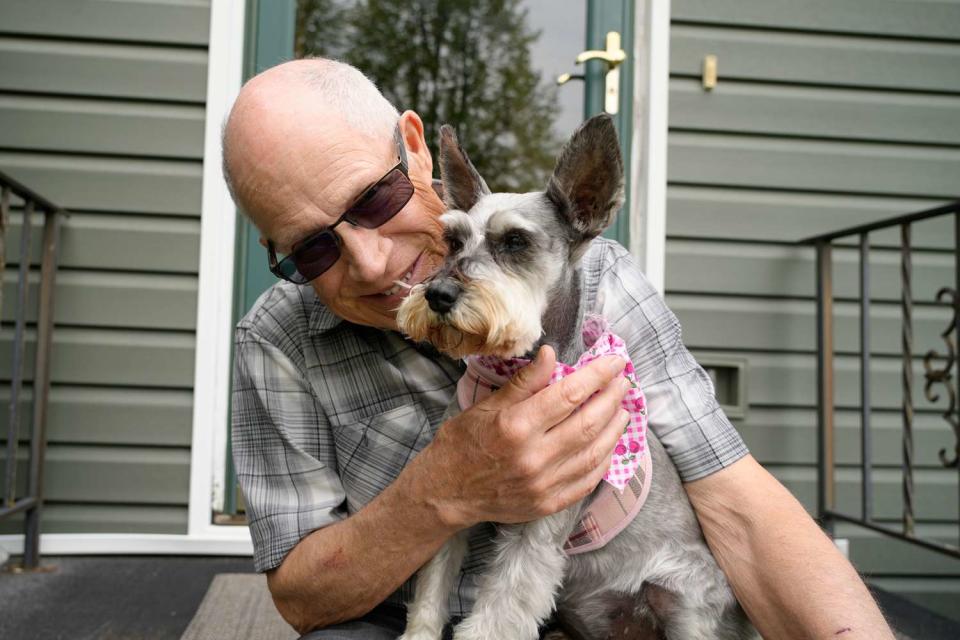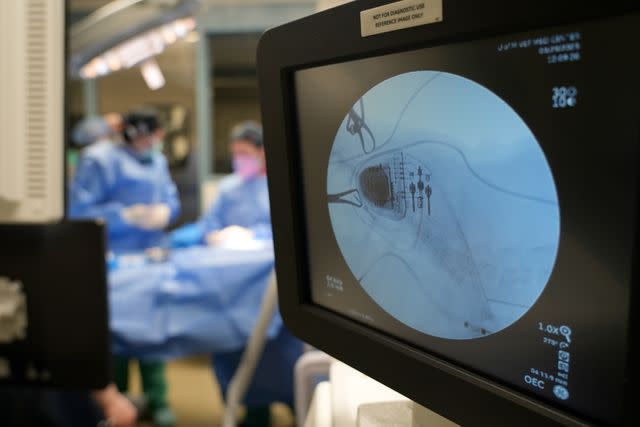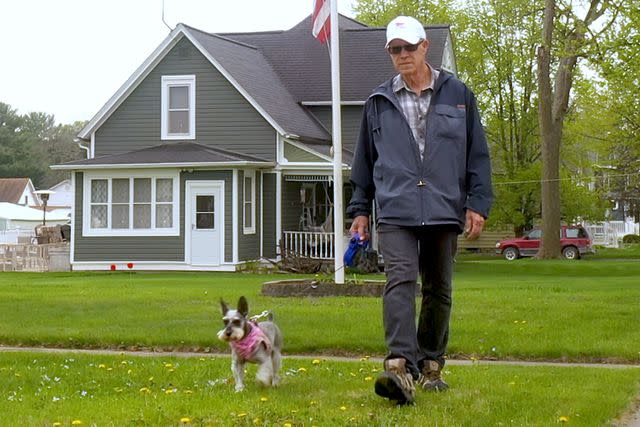Dedicated Dog Owner Gets 12-Year-Old Canine Friend a Pacemaker to Save Pup from 'Scary' Disease (Exclusive)
The human pacemaker Tara the miniature schnauzer received was donated to the canine by medical device company Medtronic

Medtronic
When Richard Berg's best friend — his 12-year-old miniature schnauzer Tara — started experiencing health troubles, he knew he would do whatever it took to protect his pal.
"I got her on Father's Day 2011," Berg tells PEOPLE of his canine companion. Since then, Tara has kept him active with her feisty, friendly attitude and deep love for walks. So Berg took grew concerned when the senior pup suddenly slowed down.
This February, Berg noticed that "every once in a while Tara would just collapse. Sometimes she'd tip over and kick her legs up."
"It was really scary," Berg adds.
He brought Tara to her vet at River Veterinary Center in Preston, Minnesota, who suspected a heart issue might be behind the dog's frightening behavior. After monitoring Tara's heart activity, her veterinarian diagnosed Tara with sick sinus syndrome, a disease where the heart's natural pacemaker malfunctions.

Medtronic
"Her heart sometimes stopped for as long as 14 seconds," Berg says of how the disease led to Tara's collapsing episodes.
When Berg asked his vet the best treatment for Tara, they said: "Ideally, a pacemaker." Berg admits he thought the suggestion might not be possible initially but then learned that with a 90-minute, relatively inexpensive operation, Tara could receive a human pacemaker device.
Part of the reason costs could be kept low for the procedure was thanks to Medtronic. The medical device company donates human pacemakers to be used in veterinary operations. Medtronic has donated more than 300 pacemakers, including Tara's, to CanPacers, a nonprofit focused on pet cardiology that distributes these pacemakers to veterinary hospitals.

Medtronic
"By providing some of the same treatment options for animals as we do for humans, we continue to fulfill the Medtronic Mission – to alleviate pain, restore health, and extend life. Many of the therapies used in humans can also help animal patients, and being able to bridge that gap into veterinary medicine is truly rewarding," Dr. Jessi Coryell with Medtronic shared in a statement.
Tara's pacemaker operation occurred at the University of Minnesota's College of Veterinary Medicine and was performed by veterinarian and assistant professor of cardiology Dr. Allison Masters.
Related: Matted Dog Found in Cornfield Goes Through Stunning Transformation After Losing Pounds of Fur
"We recommended that Tara have a pacemaker placed inside of her heart so that when her heart is beating too slowly, the pacemaker can take over. And it can make her heart beat so that she doesn't have more of those scary episodes and doesn't worry her dad any further," Dr. Masters explains to PEOPLE.
The miniature schnauzer's procedure was "relatively routine," according to the veterinarian.

Medtronic
"It usually takes about one and a half to two hours to do the whole surgery. The pet is usually under anesthesia for a little bit longer than that. Typically, after the surgery, patients recover really quickly, and oftentimes they just go home the next morning." she adds.
Tara's recovery was no different. After her operation, the dog returned home with Berg the next day and has been steadily improving ever since.
"She hasn't had any issues since the pacemaker was put in," Bergs says, adding that the pooch is back to running around and rolling in the grass.
Never miss a story — sign up for PEOPLE's free daily newsletter to stay up-to-date on the best of what PEOPLE has to offer, from celebrity news to compelling human interest stories

Medtronic
Both Berg and Dr. Masters hope that Tara's story educates pet owners on the availability of pacemakers for pets — Dr. Masters has also performed the procedure on cats.
"We're trying to spread the word that if your pet needs a pacemaker, we can do it. And it's a relatively noninvasive thing for a dog to go through. They recover very quickly." the veterinarian says.
Dr. Masters also encourages pet owners not to let "financial barriers" prevent them from exploring getting a pacemaker for their pets.
"I do want to put it out there as a general public service announcement that many veterinary colleges and many veterinary practices do try to have some funds available for owners with financial needs," she adds.
For more People news, make sure to sign up for our newsletter!
Read the original article on People.

